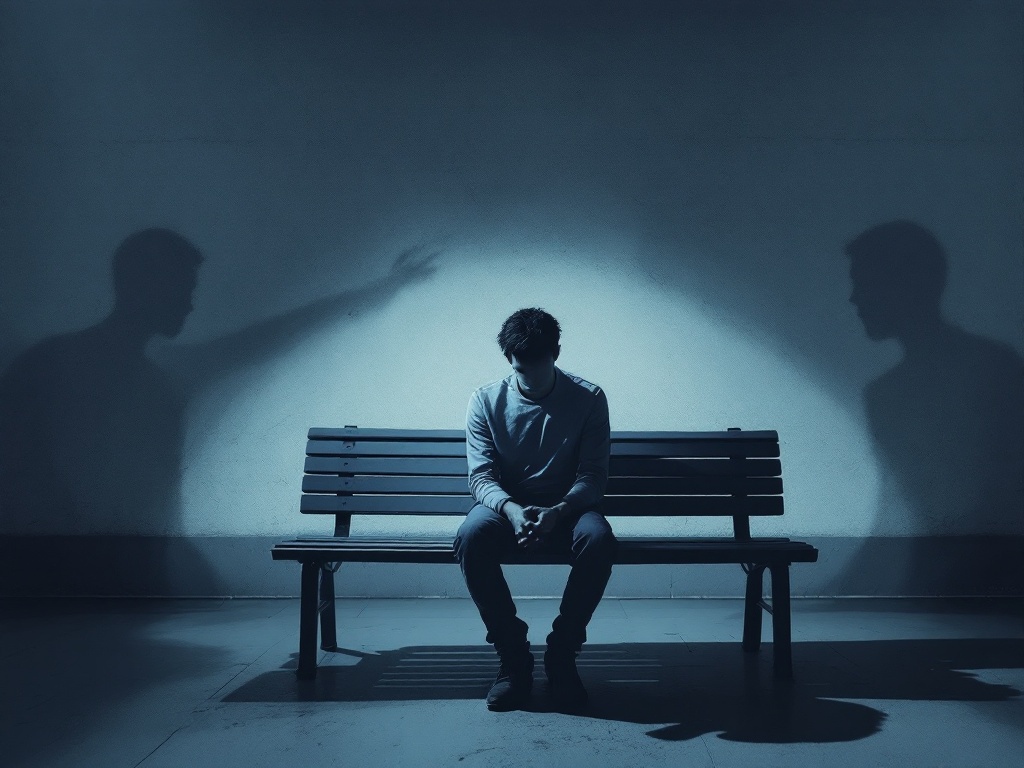In recent years, the conversation around toxic masculinity and male behaviour has been dominated by the influence of social media personalities like Andrew Tate. Politicians, commentators, and journalists have latched onto the idea that boys are being radicalised by online influencers, as if this is a new phenomenon. But blaming influencers is too convenient—it allows society to avoid tackling a deeper, more insidious issue: the role of shame in shaping young men’s behaviour.
Influencers have always existed
There has never been a time when boys were not influenced by public figures, whether they were sports stars, musicians, or political leaders. Yet, we pick and choose who we condemn. Figures like Jamie Carragher, who once spat at a girl in a fit of rage, or Roy Keane and Alan Shearer, who glorify aggression and physical dominance, are given a free pass. Meanwhile, someone like Gary Neville—who at least attempts to model a more thoughtful and responsible masculinity—is often ridiculed.
Why is it that we focus on social media influencers as a problem while excusing real-world role models who exhibit toxic behaviour? The truth is, blaming figures like Andrew Tate is an easy distraction. It allows us to ignore the broader cultural forces shaping young men, particularly the way shame is used as a weapon in society.
The unspoken force driving male behaviour
Shame is a powerful, often life-threatening emotion, particularly for young men. Yet, we rarely discuss its role in shaping behaviour, mental health, and even acts of violence.
A recent television drama produced by Stephen Graham attempted to pin the blame for a brutal murder on the impact of social media. But when you examine the story closely, it is clear that shame was the true driving force behind the crime. Throughout the series, shame is repeatedly inflicted on young boys in ways that are both subtle and overt:
- Teachers scream at students, publicly humiliating them rather than guiding them.
- A psychologist refuses to answer a young boy’s simple question – “Do you like me?” – despite having just bought him a hot chocolate, leaving him confused and rejected.
- A police raid and the public graffiti on a family’s van add layers of social humiliation that the characters struggle to escape.
These experiences mirror the real world. Despite laws against smacking children, public shaming remains a socially acceptable form of punishment. Parents chastise their children in supermarkets, teachers belittle struggling students, and workplaces use humiliation as a form of control. In the playground, shame is a currency used to isolate those who don’t conform. Even in politics, Prime Minister’s Questions thrives on the public humiliation of opponents rather than constructive debate.
The life-threatening nature of shame
For young men, shame can be lethal. Unlike guilt, which comes from knowing you’ve done something wrong, shame tells a person that they are inherently wrong – unworthy, broken, and irredeemable.
- Self-destruction – This can manifest as depression, addiction, or even suicide. The statistics on male suicide are devastating, yet we continue to ignore the underlying emotional turmoil that drives so many men to take their own lives.
- Externalised aggression – Some young men respond to shame through violence, seeking to reclaim their sense of power by dominating others. Many violent crimes are not committed out of pure malice but as an attempt to erase feelings of powerlessness and humiliation.
Breaking the cycle
If we are serious about addressing toxic male behaviour, we must shift our focus away from blaming influencers and instead confront our own complicity in the culture of shame. This means:
- Rethinking discipline – Schools and parents need to find ways to correct behaviour without humiliation.
- Modelling respect – Public figures, from football pundits to politicians, should be held accountable for normalising aggression, ridicule, and dominance as acceptable male traits.
- Educating boys on emotional resilience – Instead of simply telling young men to “talk about their feelings,” we must teach them how to process emotions in a way that doesn’t lead to self-destruction or violence.
Conclusion
Blaming Andrew Tate and social media influencers is an easy way to avoid responsibility. But if we truly want to change the way young men behave, we need to take a hard look at our own culture. We must acknowledge how deeply ingrained shame is in our society and the devastating impact it has on boys and men.
Shame doesn’t just shape behaviour – it kills. It’s time we start talking about it.

